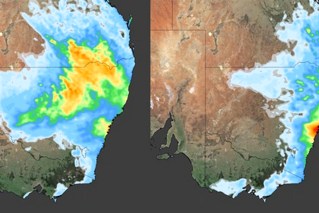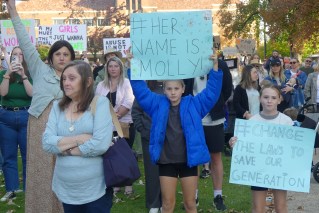Urgent moves must be made to lock in long-term vaccine deals for emerging COVID variants, experts say, with warnings Australia is at risk as new strains and virus cases explode worldwide.
While other countries look beyond vaccinations to booster shots, experts have warned Australia can’t be left behind “again” when it comes to protecting its population.
“Scott Morrison told Australians we were at the front of the queue on the vaccine rollout, but we are so far behind we can’t even see the front,” Labor’s shadow health minister, Mark Butler, told The New Daily.
Australia has administered 2.654 million doses of the first generation of AstraZeneca and Pfizer COVID vaccines, according to the latest Department of Health data on Sunday, but other nations are already looking to the future.
Israel has deals with Pfizer for vaccines to specifically address various variants, such as the more concerning Brazilian or South African strains, while Canada has agreements for access to 185 million Pfizer doses through to 2024.
Australia’s deals with Pfizer, AstraZeneca and Novavax detail supplies are all expected to arrive by the end of 2021.
The AstraZeneca and Novavax vaccines have high efficacy rates against the ‘original’ COVID strain, but studies show they are less effective against some variants.
It’s expected most COVID vaccines may need annual or regular ‘booster’ shots, like flu vaccines, but no information has yet been shared on Australia’s vaccine plans beyond this year.
Plea to invest in boosters
Health Minister Greg Hunt said last week Australia would continue to “take the medical advice” on making vaccine deals, but the government would not “pre-empt contracts or agreements before they’re signed”.
“We are deeply involved in looking beyond this year at booster or variant strategies, and that is a very important part of our consideration,” he said.

Melburnians queue for their COVID-19 vaccination at the Melbourne Convention and Exhibition Centre.
The federal health department declined to answer questions about possible future agreements, saying negotiations were “commercial in confidence” but would be guided by official advice.
Epidemiologists say the more people are infected with the virus, the more likely worrying variants will emerge, as has been seen in huge outbreaks in the United Kingdom, Brazil, South Africa and now India.
Labor has long agitated for the federal government to start thinking about booster shots, after criticising the government for being late on the world stage to lock in initial COVID vaccine deals.
Mr Butler claimed the government needed to move quicker.
“As the virus mutates there will need to be booster shots. But at the current rate of the vaccine rollout Australians will be waiting two years to be fully vaccinated,” he told TND.
“Scott Morrison and Greg Hunt are flat-footed, just as they were when the first contracts of the vaccine were being negotiated.”
- Related: ‘Abandoned’ Australian dies in India
Rachel Siewert, the Greens’ health spokesperson, also wants the federal government to announce future deals.
The Greens have called for Australia to invest in onshore production facilities for mRNA vaccines, which Senator Siewert said would help safeguard against future variants.
“We’ll have to be able to make vaccines for variants, or get them imported in. We definitely need long-term commitments,” she told TND.
“Until we have a way to deal with variants, we won’t be opening our borders.
“Unless lower GDP countries have access to vaccines, that’s where variants will be made. The best way to guarantee this, and to contribute to the world effort, is to manufacture them ourselves.”
The mRNA vaccines, like Pfizer and Moderna, are expected to be easier to adapt each year to deal with emerging variants.

Health Minister Greg Hunt says Australian companies are interested in producing the mRNA vaccine type, but we haven’t seen any concrete commitments. Photo: AAP
‘Will we be a year behind?’
Professor Mike Toole, epidemiologist at the Burnet Institute, said addressing variants and locking in future supply deals were key concerns for dealing with COVID into the future.
“It should be on the radar,” he told TND.
“I would expect by next year, there will be the need for boosters. We’ll see how it goes in the northern winter. They will be the first to do that.”
Professor Toole said it was difficult to predict which strains could become ‘dominant’ in various countries, and how different vaccines would work against different variants, but he held serious concerns.
“If the Brazilian or South African strains spread around the world, which is quite likely, then you have a problem with the vaccines, and you’d definitely need a booster,” he said.
Adjunct professor Bill Bowtell, infectious diseases expert at the Kirby Institute, warned the pandemic was getting worse in many parts of the world.
“Next year’s virus is coming, and it may be more deadly and dangerous. Will we make the same mistake we made a year ago, in not securing vaccines against the disease that’s coming? Will we be a year behind?” he told TND.
“When we may see a new variant emerging, most Australians may not have had a vaccination at all.”
The Department of Health said it was “assessing preliminary data” for the Novavax and Johnson & Johnson vaccine.
However, the department said it was unable to say when the Novavax vaccine may be approved, noting “the timeframe will ultimately depend on when the complete data package is provided by sponsors to enable the required regulatory processes”.









